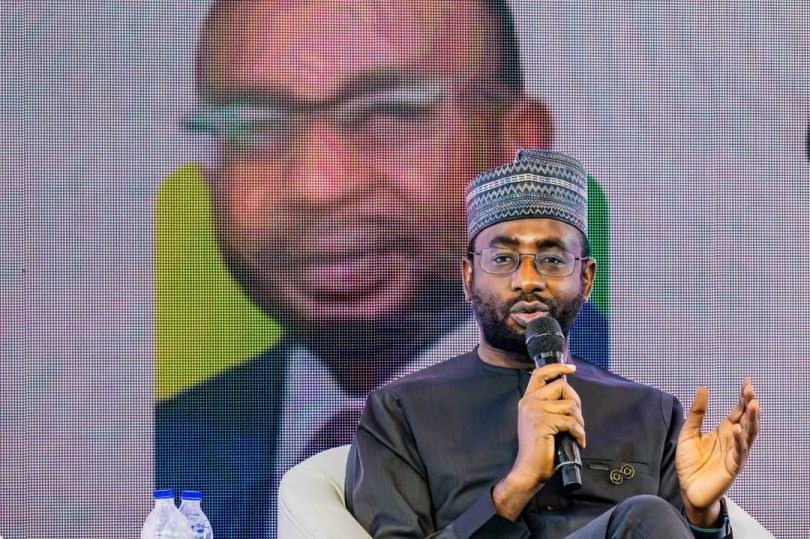The Director General of the National Information Technology Development Agency (NITDA), Kashifu Inuwa Abdullahi, has called for stronger collaboration, practical innovation, and inclusive policymaking to ensure Africa transitions successfully into an AI-ready continent.
By Chimezie Godfrey
The Director General of the National Information Technology Development Agency (NITDA), Kashifu Inuwa Abdullahi, has called for stronger collaboration, practical innovation, and inclusive policymaking to ensure Africa transitions successfully into an AI-ready continent.
He made the call while speaking during panel sessions at the Hyperscalers Convergence Africa 2025 held in Lagos, themed “Fostering a Digital Africa: Connectivities, Convergence and Innovation.”
Inuwa, who spoke on the topic “From Mobile First to AI-Ready: Will Africa Deliver on Innovation?”, noted that Africa’s challenges also present immense opportunities if the right structures are put in place. He reiterated that Africa’s youthful population remains its greatest asset if properly harnessed.
“We have a generation that is energetic, curious, and ready to embrace any digital technology available to them,” he said. “But we must equip them with the right skills. Otherwise, our youth bulge could turn into a demographic burden driven by unemployment and underutilization of talent.”
According to him, the Federal Government has been deliberate in turning this advantage into a digital dividend through initiatives such as the 3 Million Technical Talent (3MTT) programme, the largest human capacity development initiative in Africa.
He further disclosed that new funding mechanisms, including the PPP Policy on Mediation and the Project Bridge initiative, were recently approved by the Federal Government under President Bola Ahmed Tinubu to align public, private, and development partner investments for accelerated digital infrastructure delivery.
Inuwa said government is also building a robust Digital Public Infrastructure (DPI) framework to connect identity, payments, and data systems — the foundation upon which innovators can develop AI-powered services.
He cautioned against Africa’s overdependence on AI models from advanced economies, stressing that local data and domestic talent must drive homegrown solutions that reflect African realities.
“During the industrial revolutions, Africa supplied the raw materials that powered global industries but gained little technological benefit,” he said. “This time, we must ensure unity, build capacity, and collaborate to lead, not follow.”
At another session titled “Shaping Africa’s Digital Future: Policy and Regulatory Frameworks for Accelerated Growth,” the NITDA boss advocated a “dream big, build small” approach, urging innovators to create practical, scalable solutions that address local problems while keeping continental goals in view.
“Technology doesn’t respect borders or hierarchies; it connects and transforms,” he said. “The solution that works in your community can scale to serve the world — that’s how global tech companies begin.”
Inuwa also emphasized the need for inclusive, data-driven, and collaborative policymaking, revealing that NITDA’s Intelligent Regulatory Framework ensures that policy design is grounded in awareness, inclusiveness, and adaptability.
He cited the co-creation of Nigeria’s National Artificial Intelligence Strategy, developed through collaboration with AI experts, civil society, academia, and the private sector, as a model for how policy should evolve in Africa’s digital age.

